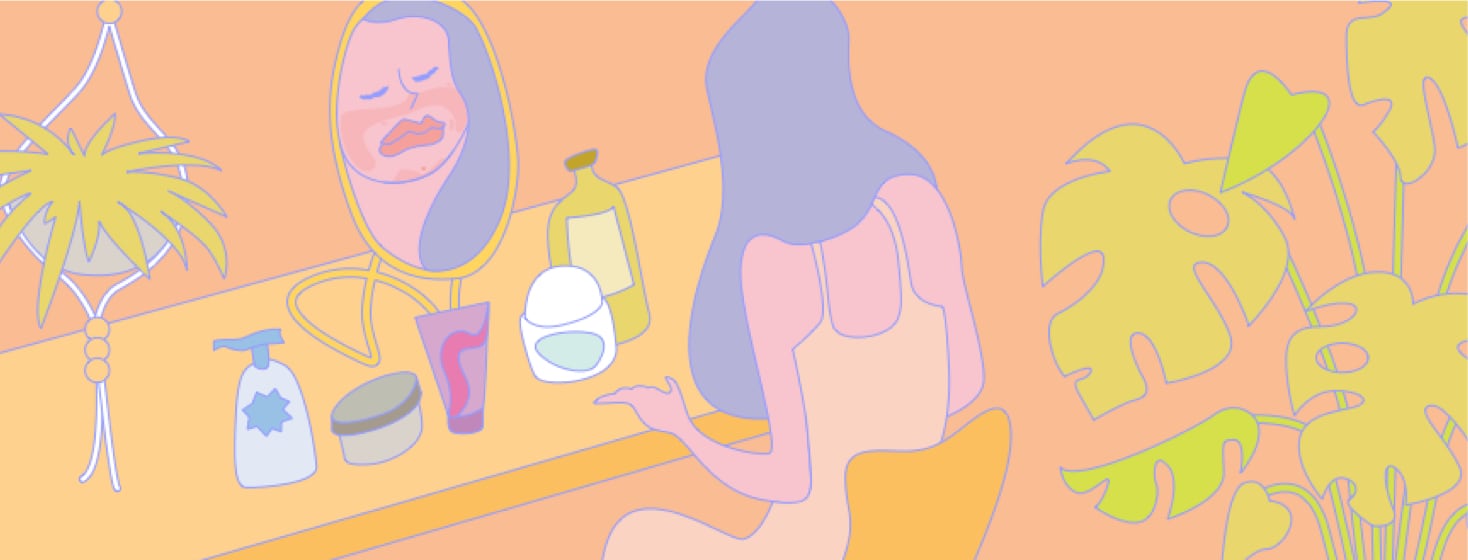Skin Care Tips for Lupus
Cutaneous lupus erythematosus (CLE) is lupus that affects the skin. CLE flares cause a rash to develop over parts of the skin. It may appear as a "butterfly rash" covering the nose and cheeks (acute CLE). It may also emerge as scaly patches or red circular sores on the arms and neck (subacute CLE).1,2
Living with CLE may require treatments. Awareness of flares and how to minimize them is essential.
Cover your skin
Ultraviolet (UV) light from the sun can trigger lupus skin reactions. So can extreme cold. Covering your skin is vital for protecting yourself. When out in the sunlight, remember to:1-3
- Apply (and reapply!) sunscreen to all exposed skin areas.
- Find shady areas to avoid direct sunlight.
- Wear hats that protect your face and neck.
- Wear long pants and long-sleeved shirts.
For those who live with Raynaud's disease, cold protection is equally important. Fingers and toes especially react to cold temperatures. If spending time in cold outdoor environments or air-conditioned buildings:2,3
- Wear gloves or mittens and heavy socks.
- Choose warm coats and hats.
- Dress in layers.
- Stick hand warmers in your pockets.
Lightbulbs
Certain types of lightbulbs also give off UV light. The UV light from artificial light is lower than from sunlight. But those with sensitive skin can flare or get itchy skin from the exposure.2,3
When possible, change out any fluorescent or halogen lightbulbs. LED or incandescent bulbs are better choices. If you cannot change the lightbulbs, consider investing in a light filter or shade. This can help reduce UV exposure. If you have to be exposed to UV light for a long time, use the same techniques you would to protect yourself from the sun.2,3
Hands off
Touching the skin flares can make them worse. It can also result in new sores. Do not touch, pick, scratch, or rub the flare patches.3
Lifestyle changes
Tanning beds and smoking can worsen skin flares. Tanning beds are similar to sun exposure. They bring UV light in contact with your skin, which can cause flares. Smoking can reduce the effectiveness of certain treatments, such as antimalarial drugs. If you smoke and need help quitting, ask your doctor about smoking cessation programs.1,3
See a dermatologist
Dermatologists specialize in treating skin. Having a dermatologist on your healthcare team is vital. Dermatologists can prescribe treatments to manage lupus outbreaks. They can watch for signs of CLE progressing to systemic lupus erythematosus (SLE). They can evaluate whether you would benefit from adding:3,4
- Supplements
- Vitamins
- Other alternative treatments
Topical creams
For lupus outbreaks, doctors often first recommend creams that you apply to your skin (topically). Doctors prescribe topical steroids and topical calcineurin inhibitors (TCIs) for CLE.1,4-7
Steroids reduce skin inflammation. They lower the overactive white blood cell activity in the body. TCIs target a blood protein that causes inflammation. You use TCIs on sensitive skin areas. Steroids cover broader skin areas.1,4-7
Antimalarial drugs
For long-term maintenance, doctors prescribe antimalarial drugs. These drugs protect the skin from UV light and rashes. The drugs most prescribed are:1,4-6
- Chloroquine (Aralen®)
- Hydroxychloroquine (Plaquenil®)
Antimalarials can help reduce skin symptoms by reducing the blood proteins that attack healthy tissues and cells. But these drugs can also cause damage to the eyes. Schedule regular eye exams when taking antimalarials.1,4-6
Immunosuppressive drugs
Lupus flares occur when the immune system attacks healthy tissue. Immunosuppressive drugs dampen your immune system response. This helps stop the immune system from attacking your skin. But a suppressed immune system also makes it harder for the body to fight infections. The drugs most prescribed are:4-6
- Methotrexate
- Mycophenolate mofetil
- Thalidomide
- Azathioprine

Join the conversation